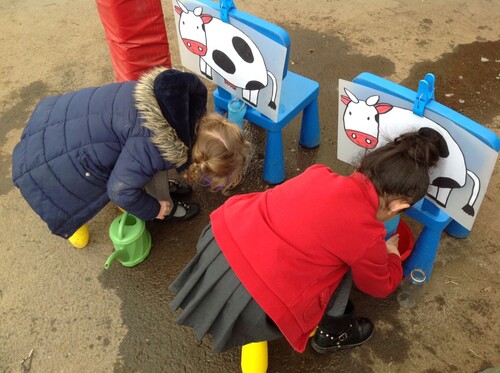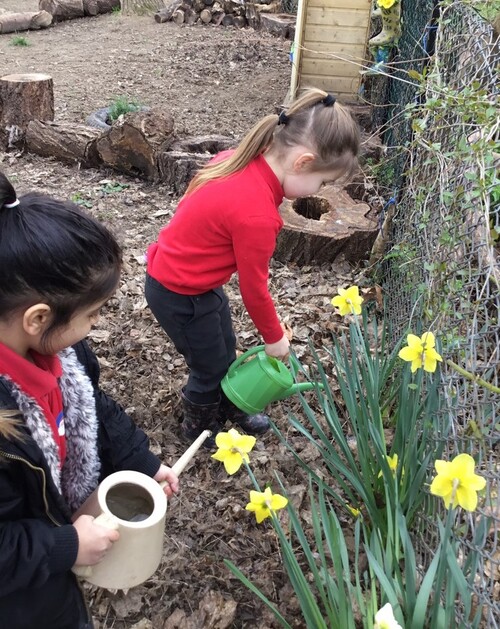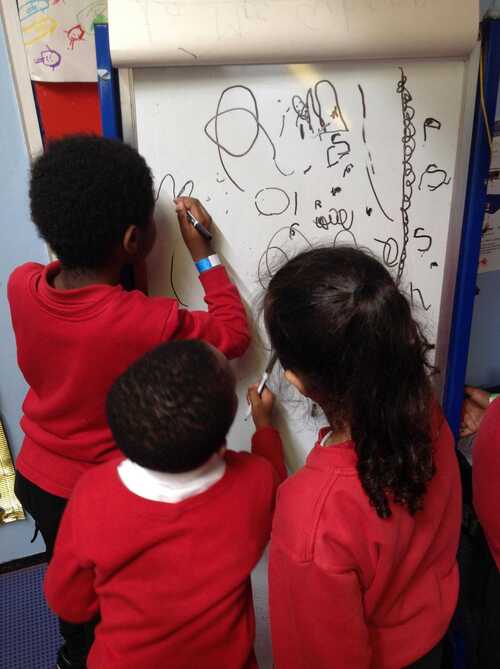The Early Years Foundation Stage (EYFS) applies to the learning and development of all children from birth to the end of the Reception Year. Children join our School Nursery in the first year of EYFS in the September following their third birthday and then join Reception in September of the academic school year when they turn five years old. We currently have 2 classes in our Early Years:
Nursery classes:
Reception classes:
The Early Years is an important time in your child’s life that develops and celebrates children’s confidence, imagination and explorative natures. At Honilands we encourage children to be risk takers and to recognise the power of resilience. We encourage the children to aspire to be the best they can be!





The Early Years Curriculum
We follow the Early Years Foundation Stage (EYFS) which is the statutory framework that sets the standards that all Early Years providers must meet to ensure that children learn and develop well and are kept healthy and safe. The children learn through a balanced curriculum of fun, structured lessons and by following their own interests in a well-resourced and exciting environment.
The Foundation Stage curriculum is divided into seven areas of learning. These are as follows:
The prime areas are:
The specific areas are:
Our curriculum enables the children to learn and develop skills, attitudes and understanding in these areas of learning:





Our curriculum is also designed around ‘The Characteristics of Effective Leaning’. These highlight the importance of a child’s attitude towards their learning and their ability to play, explore and think critically about the world around them. The three characteristics are:
As part of our practice we:
Early Reading /Core books:
To encourage our children to develop their enjoyment of books and to surround them with key vocabulary, we link our teaching opportunities to popular story books (core books).
During their time in Reception the children will be introduced to Phonics. In Nursery the children will have plenty of opportunities to explore games and rhymes focused on sound discrimination and rhyming, when ready they will be introduced to letter sounds. It is an incredibly exciting time for the children as they begin to use these skills to read words independently. We use a Phonics scheme called Read, Write, Inc (RWI). Please come and ask us about this if you want any more information.





Assessment
Children are observed continually, in order to assess their stage of development and to plan their next steps of learning.
As of September 2021, all children in Reception are assessed against the statutory Reception Baseline Assessment (RBA) within the first 6 weeks of starting Reception. The assessment looks at the children's skills in speaking and understanding, literacy, phonics and early mathematics. Please click on the below link to find out more about it.
In Nursery and Reception, teachers make assessment judgements on children’s all-round progress at the end of each term. At the end of Reception, children’s achievement is reported to parents against the Early Learning Goals (ELG) in the Early Years Foundation Stage Profile. The children are assessed against each ELG as follows:
Please click on the below link to find out more about the age-related expectations for children in the Early Years.
Information for Parents: What to expect in the Early Years
Tapestry
Observations of children’s achievements are collated in their own personal, online Learning Journal (Tapestry). Tapestry is a secure online Learning Journal to record photos, observations and comments, in line with the Early Years Foundation Stage curriculum, to build up a record of your child’s experiences during their time with us.
Parents/Carers receive a notification when evidence has been added to their child’s journal. Parents/carers are encouraged to add their own comments and also to upload their own observations to show us what their children are able to do at home. Home Learning is also shared via this.
Parental Involvement
We welcome and actively encourage parents to participate confidently in their child’s education and care in numerous ways.
We also draw on our links with the community to enrich children’s experiences by taking them on outings and inviting members of the community into our setting to talk about their lives, work and experiences.





Please click on the below links to find out more about the Early Years Framework:
Non-Statutory Curriculum Guidance